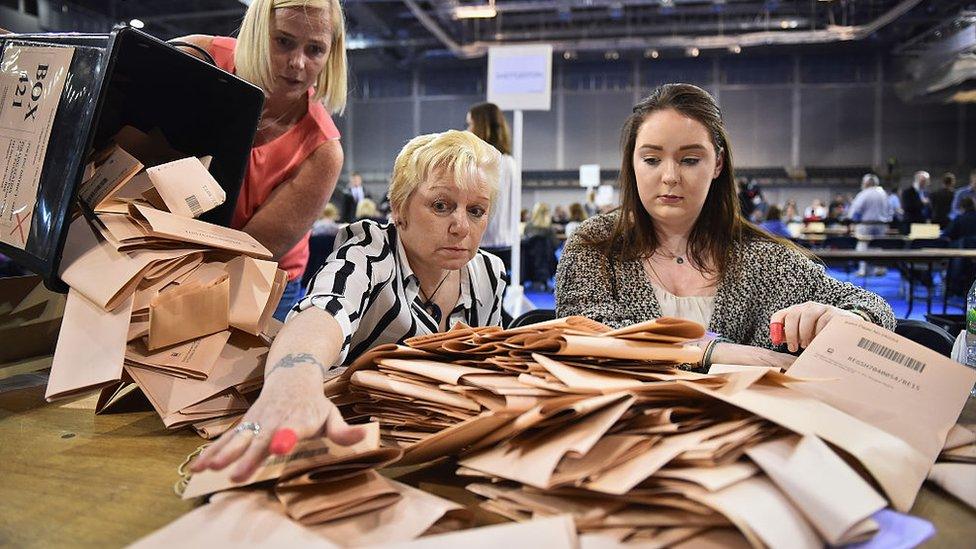Scottish election 2021: How have candidates answered five key questions?
- Published
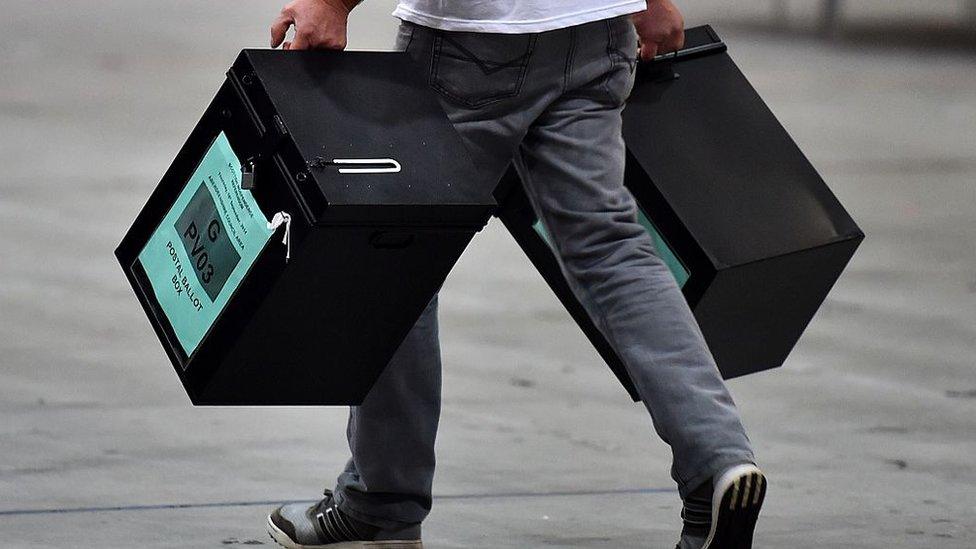
Voting in the Scottish Parliament election takes place on Thursday
Well, it's make-up-your-mind time, if you haven't voted by post already. We're as well informed as we're going to get about the options for the Holyrood election.
On 29 March, BBC Scotland news online published five questions you might want to put to candidates, ahead of deciding how to use your vote in this Holyrood election.
More than two months later, and with hours until polling opens, what answers would you have received, and how has the campaign itself shaped the debates around them?
One unusual feature of the campaign - apart from social distancing - is that the main parties have been in, or close to, agreement on many of the big questions. With one exception - the constitution - they are agreed on much of what needs to be done.
That helps explain why that one area of dispute has taken up so much airtime.
The differences are mostly in the priorities and urgency they have, in how much they intend to spend, and how realistic they are about the funds likely to be available. Looking across the major parties, public finance experts say their budgeting is not realistic. So as we return to the five questions, treat these spending pledges with caution.
1. How are you going to rebuild the economy once the pandemic crisis is over?
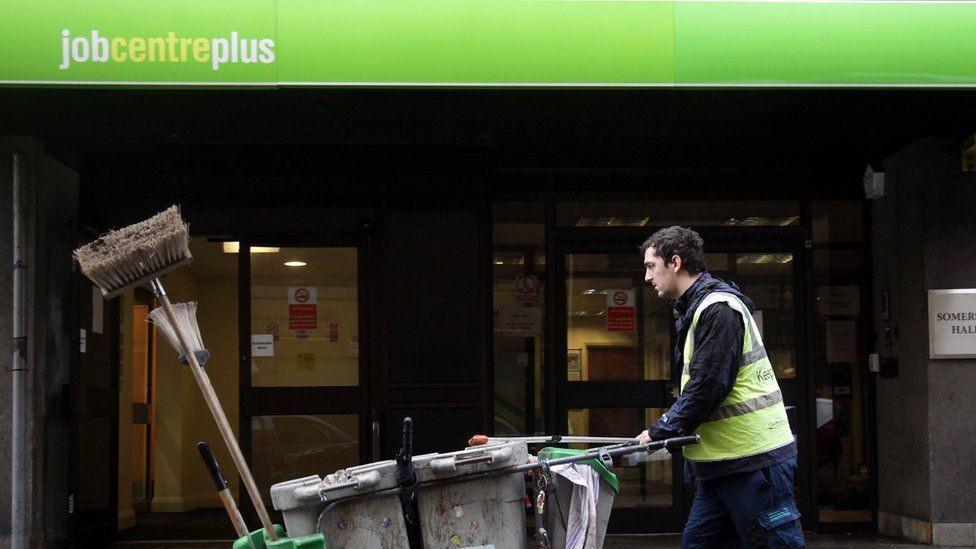
The agreement extends across ensuring there are jobs and work experience for young people, retraining for older workers losing their jobs, with loans and grants to help companies weather the crisis.
They would like to see tax breaks for small firms such as shops, infrastructure including broadband and transport, a transition to renewable energy, possibly bringing new jobs, and various pledges for big change to the way our homes are heated as well as building new affordable homes.
There's little being said about the role of big business, but Lib Dems and Greens want to focus on help for smaller ones. Conservatives also want a move to a more regional focus for economic policy.
Labour suggests a £75 spending voucher for high street shops, and an incentive to go on a staycation. Its plans are the least constrained by budget limits. With the SNP and Greens, there is talk of a universal basic income and a standard four-day working week, but neither are likely to be possible in the next five years.
None of the major parties propose significant shifts in the rates and thresholds of income tax. One variation is that the SNP is not promising to raise thresholds with inflation. If they don't, that would bring many more Scots - an estimated 100,000 - into the higher, 41% tax band. There is an un-costed Conservative aspiration that income tax be re-aligned with Westminster.
Most agree council tax should change, though the Tories would keep it for now. They all want to reform business rates. Although both taxes are wholly controlled from Holyrood, none of the main party manifestos put forward a plan to achieve either reform.

What are the parties promising you?

Use our concise manifesto guide to compare where the parties stand on key issues like Covid-19, independence and the environment.

2. What are you going to do to secure the NHS and ensure care for those who need it?
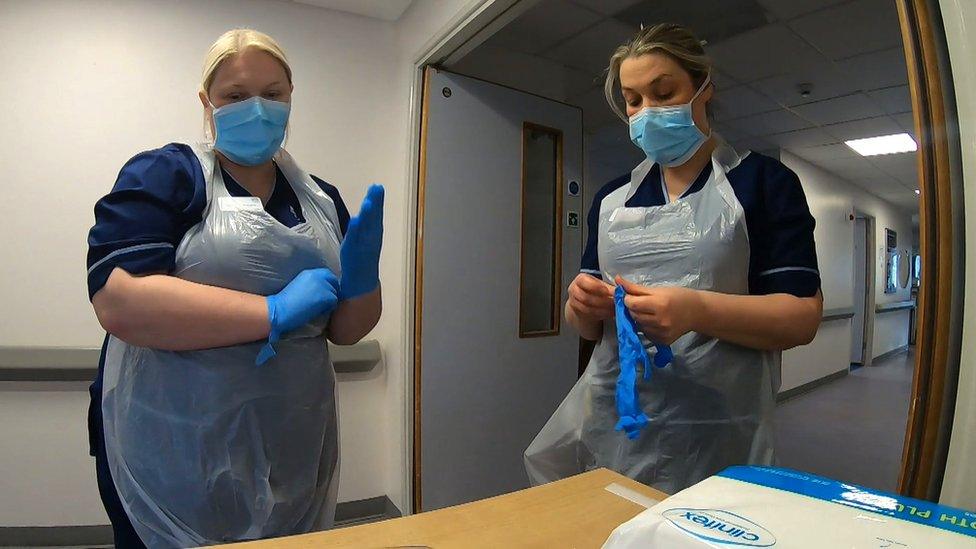
Every politician is a good friend to the National Health Service, especially at election time.
They all want to tackle backlogs of care built up through the crisis, and there are commitments to boost pay. For the SNP, that is a 4% offer for non-medics. Labour talks about a rise to at least £15 per hour. Pledges to hire more NHS staff face the challenge of finding or training them.
Parties want to dedicate set percentages of the budget or new budgets to mental health (Lib Dems in the lead with 15%) and, for Greens, general practice. The SNP is not offering to be constrained that way.
The promises of extra spending are not easily compared, as they are over different time periods or, in Labour's case, not clear after this year. Although at least £2bn per year is expected by 2025, the Institute for Fiscal Studies believes the true cost of stabilising the NHS after the pandemic may be much more.
Social care is likely to get more attention in the next five years, having been painfully stress-tested through the pandemic. Labour and the SNP want to see a national care service, replacing local control over funds with national commissioning of care, using national employment contracts at more generous rates, to meet national standards.
Lib Dems join them in wanting home care visits funded by the taxpayer, and are with Conservatives in their concerns about the implications for centralising power. Greens want a national service, yet with local commissioning.
3. What will you do about the time young people have lost in education?
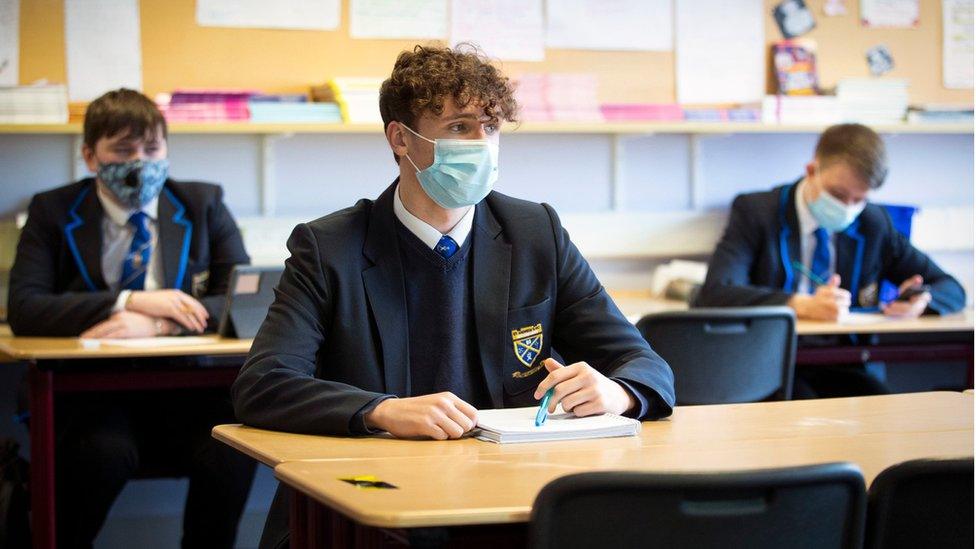
There's agreement on the challenge to bring school pupils back on track, and catch up on lost time in the classroom. Everyone is concerned about the widening of inequality while schools were shuttered.
While others think this can mainly be done within the timetable, Conservatives want to allocate funds to an additional catch-up programme. They and Labour have tutoring in mind. The SNP and Labour emphasise the adoption of technology and teacher skills to deploy it.
The SNP's opponents are vying to have the largest pledge for additional teachers, with the Greens most ambitious to reduce class sizes. Greens and Lib Dems want to start primary at the age of seven.
This is where you can see more divergence between parties, about what education needs next. The SNP's rivals highlight concerns about standards, continuing and obstinate inequality, and a delayed, independent report into the curriculum. There is pressure for reform of school inspections and qualifications.
A debate has opened up on how school leavers should be assessed. While Greens favour an end to formal exams, Conservatives say they want to retain them.
There has been less debate about colleges and universities. But the pandemic has put unprecedented pressure on their income, and they face a challenge in bringing new students up to speed, after such disruption to their schooling.
4. How far and how fast will you go to tackle climate change?
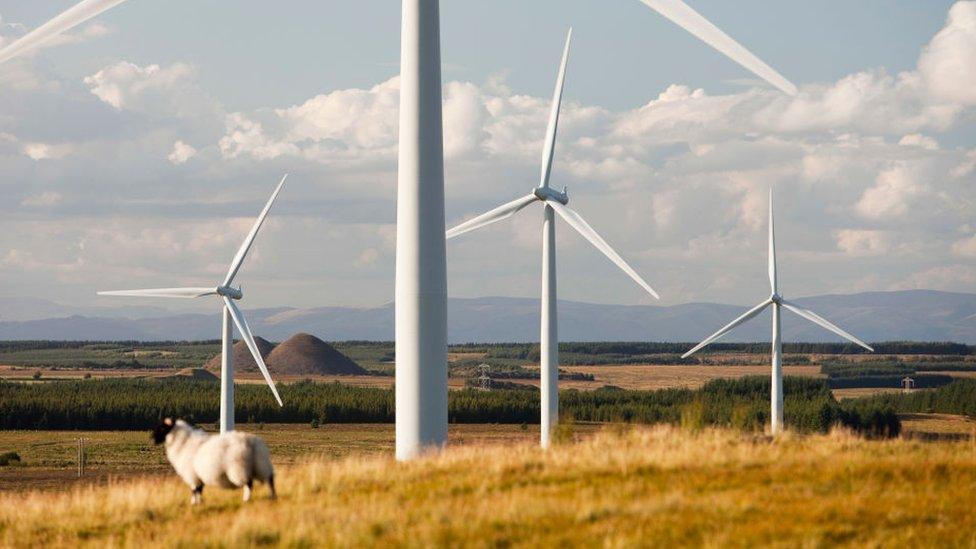
There's no dispute about climate change and the need to reduce emissions. There isn't much dispute about the targets. But how to get there?
Greens want to push further and faster, including accelerated slowdown of the oil and gas industry faster than others. The environment gets lower priority from Tories, preferring to mix it with rural policy and tree-planting, while expanding road capacity.
There is much talk also of a transition to renewable energy involving job creation, through varying and vague pledges to ensure Scottish jobs are secured in wind farm contracts. The SNP proposes to have a "just transition minister", and Labour also focusses on the employment consequences, concerned with jobs lost and jobs created. The Lib Dems set very ambitious targets to reach all of Scotland's energy needs being met from green generation within nine years, and all its electricity all of the time.
There are promises of funds for shifting public transport away from diesel use, and more charging infrastructure to encourage car owners to choose electric vehicles.
A big project for at least the rest of this decade looks like being improved energy efficiency for up to a million Scottish homes, but without much clarity on how much home-owners will be expected to contribute, and how intrusive it could be in internal cladding.
This is one area where promises of spending are accompanied by change being required from the public. From this campaign at least, few voters will have clocked the likely extent of change ahead.
5. How could government in Scotland be run better?
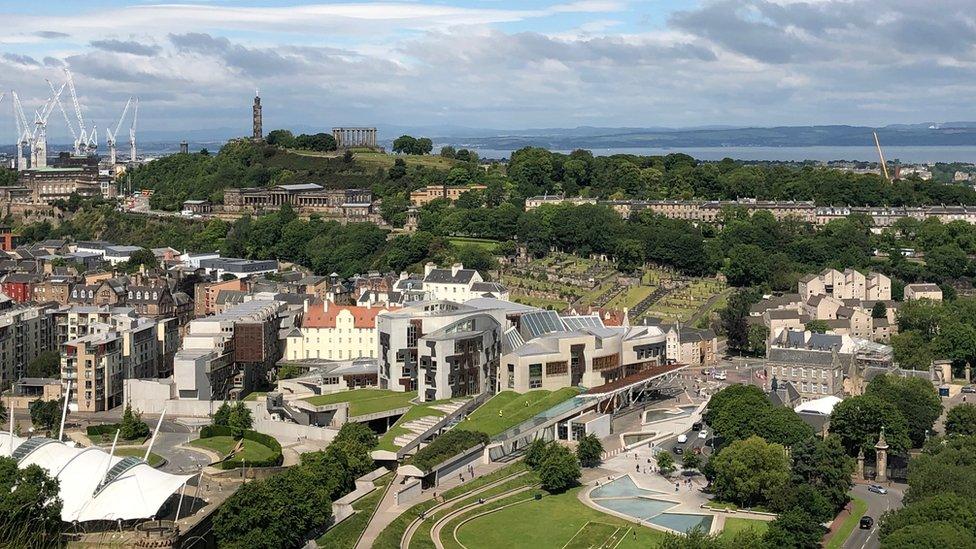
There has been some push to decentralise power, from Holyrood to councils and communities. Tories want to guarantee a share of funds to local authorities, with Lib Dems and Greens also banging the drum for localism. It is one area where they see themselves contrasting with the SNP.
However, the dominant item on the agenda is independence. If you wanted to find out what an independent Scotland might be like, the campaign will not have taught you much, beyond expensive aspirations such as a universal basic income.
It has, however, focused on the much narrower question of whether there should be a referendum.
The SNP and Greens say there should, and they're being pushed by Alba to get on with it or push on without one. The Tories' top priority is to stop a referendum, while Labour and Lib Dems would vote against one while preferring to talk about other priorities.
One confusion in this is where Boris Johnson and Conservatives at Westminster say they would block a referendum, even if there is a majority in favour at Holyrood.
If that is true - and it's open to political argument, legal dispute and the prime minister's unpredictable ways - it means that a vote for a pro-referendum party does not mean you will get a referendum, while an anti-referendum vote is not needed to block one.
Thus, the main area of dispute in this campaign is rendered moot - except that the result will surely be used in future campaigning.

POLICIES: Who should I vote for?
CANDIDATES: Who can I vote for in my area?
PODLITICAL: Updates from the campaign

- Published29 March 2021
